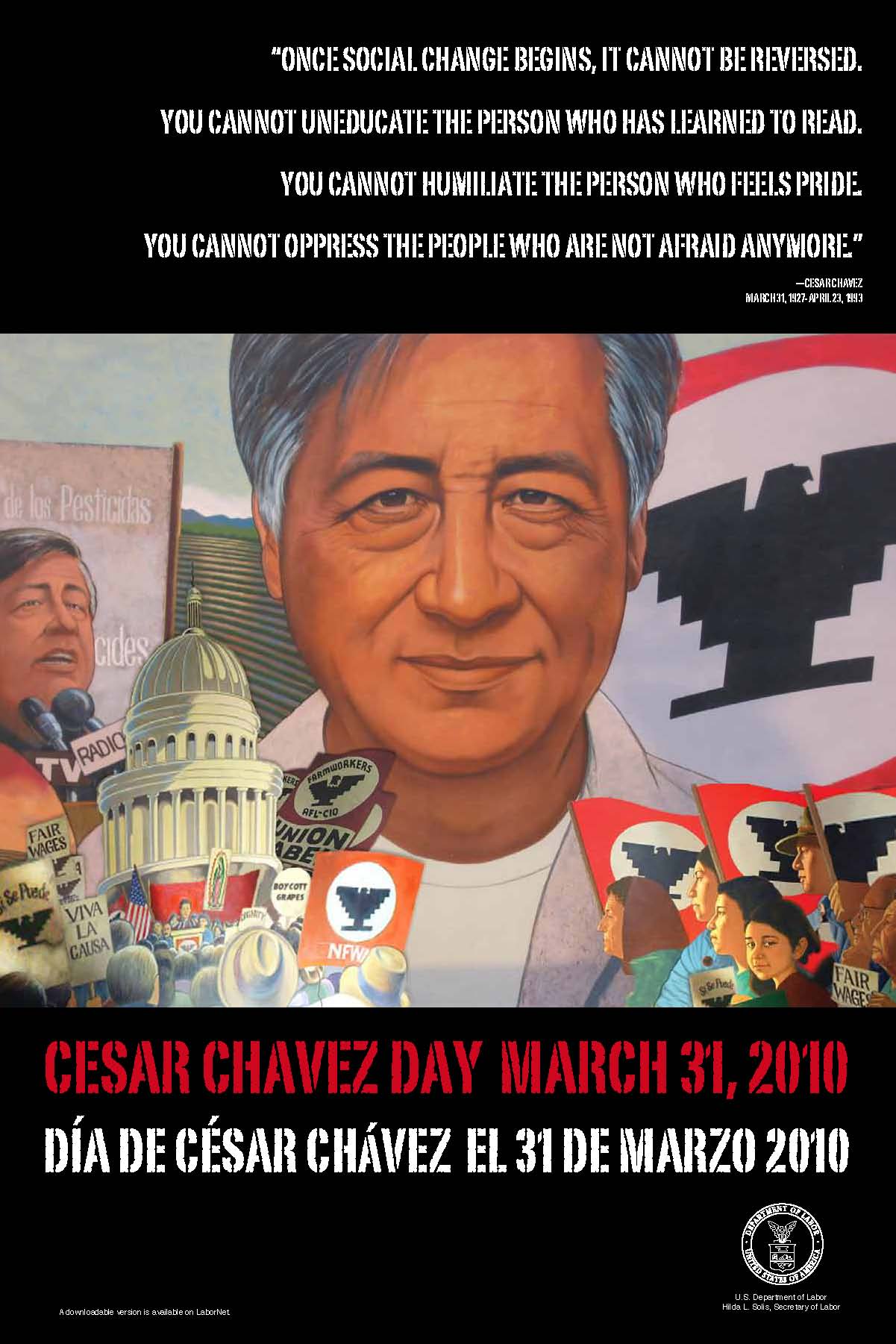March-April 2018
From the Editor
Responding to the Call
By Arlenne Villahermosa
The Missionary Society of St. Columban’s centenary celebration has been blessed with two ordinations in the Philippines in the month of February: Diaconate Ordination of Rev. Peter Dong, the first Chinese member of the Society in one hundred years on February 4, 2018, and the Priestly Ordination of Rev. Erl Dylan Tabaco on February 17, 2018.
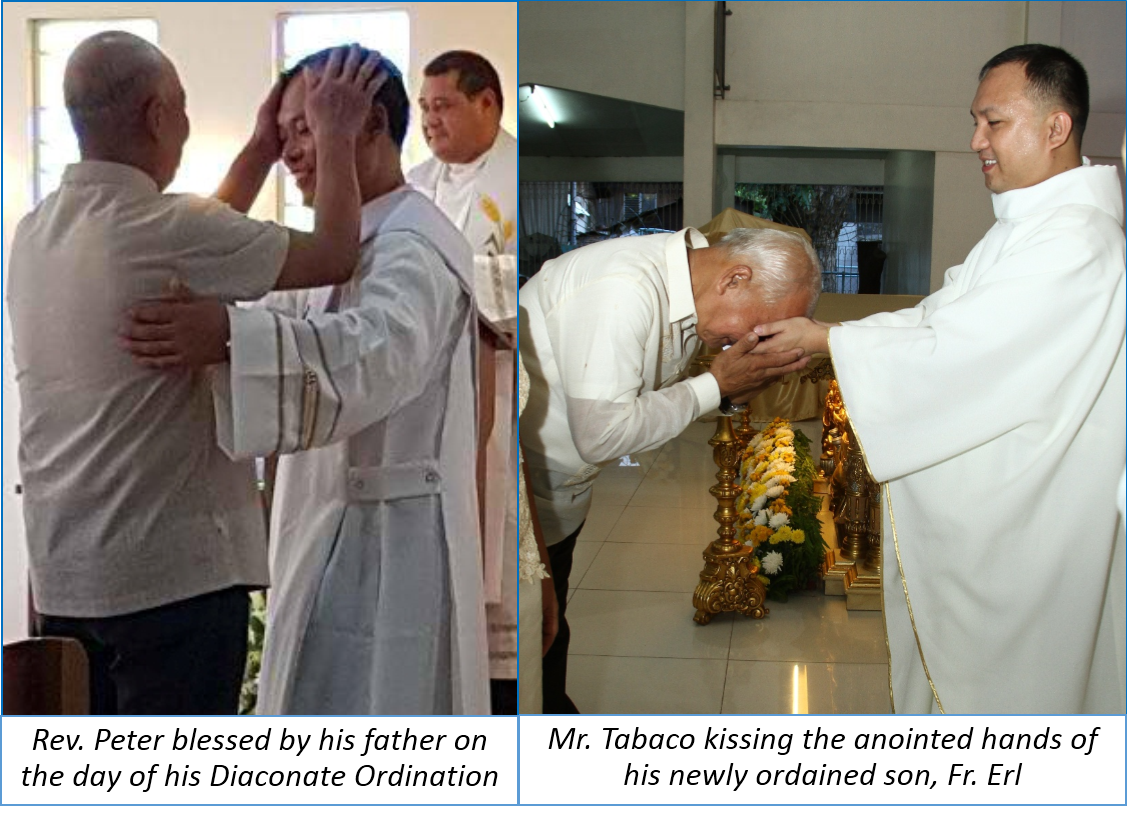
These two occasions speak not only of jubilation on the day of ordination but also of a journey filled with the grace of God, a process of listening to and answering the call. They speak of formative years so that each one may discover and know the depth of God’s love in themselves, and by the same love reach out to others in mission . . .

The Late Dawn of a Restless Dream
Here is an article about the diaconate ordination of Peter.
A faith born in the shadows cast by a single candle in a tightly curtained room of a small farming village in China emerging from the repression of the Cultural Revolution in the early 1980s blossomed on February 4 in the chapel of the Columban Seminary in Manila, as Peter knelt before Bishop Honesto Ongtioco to be ordained a deacon, becoming a minister of the word of God that he had imbibed in the clandestine darkness of his home so many years before.
The ordination was also the fulfillment of a dream born in the imagination of an Irish priest working in China over 100 years ago . . .
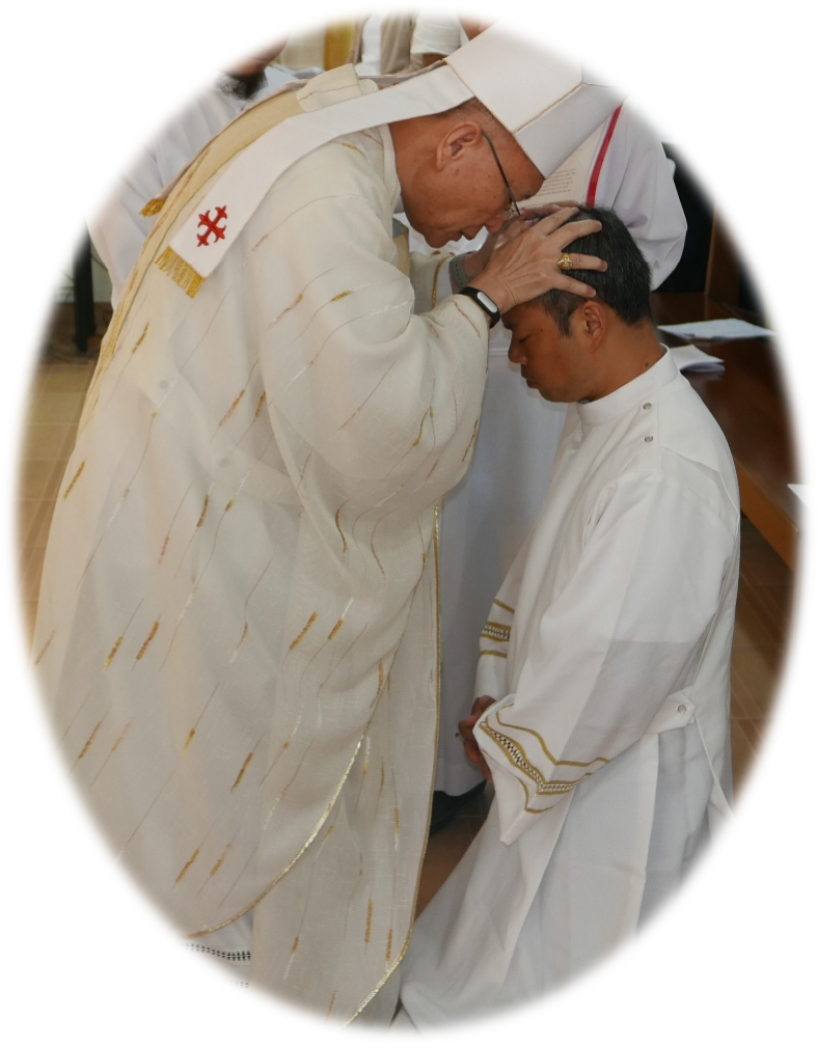

Solemn Profession of Filipina Carmelite in Belgium
By Sr. Mary Carmela OCD
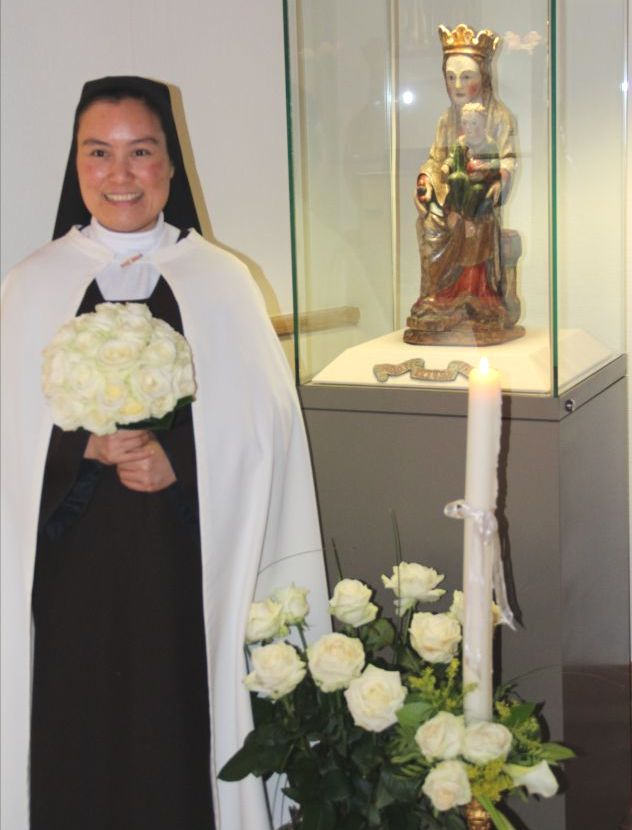
Sr. Marie Paul Thérèse after her Solemn Profession
This story has one of its beginnings in the pages of MISYON, as MISYONonline.com was known before. Columban magazines have been a significant part of the vocation story of many, not all of them Columbans, such as Sr. Marie Paul Thérèse of Jesus the Good Shepherd. We thank God for that.
On Sunday October 1, 2017, the feast of St. Thérèse of Lisieux, the sun was shining brightly in Vilvoorde, Belgium. The Carmelite monastery church, the Basilica of Our Lady of Consolation, was beautifully decorated with white flowers and filled with more than the usual Sunday attendance. The atmosphere was festive as Sr. Marie Paul Thérèse of Jesus the Good Shepherd, our youngest Sister, pronounced her perpetual vows in the Order of Our Lady of Mount Carmel during the Solemn Mass that began at 3pm.
The eldest of four siblings, Sr. Marie Paul Thérèse, née Jurechille Catalan, was a member of the Redemptorist Youth Ministy in her birthplace, Iligan City. She came to know Vilvoorde Carmel in 2007 upon reading The Touches of God in MISYON, then a printed magazine, by one of the Filipina Sisters, Sr. Carmela, about her first home visit. She was intrigued by the term "contemplative-missionary Carmelite", something new to her and asked how it was possible to be one . . .

Music Eases My Journey
By Vasemaca Ratu
Vasemaca Ratu is a Columban Lay Missionary from Fiji who came to the Philippines in December 2015. After language studies she was assigned to Barra sub-parish, Opol, Misamis Oriental doing catechesis with the children. She is also involved with the women’s ministry (livelihood), Basic Ecclesial Communities (BEC), and with the youth ministry. Now, she is working with the Diocesan Deaf Ministry of the Archdiocese of Cagayan de Oro.
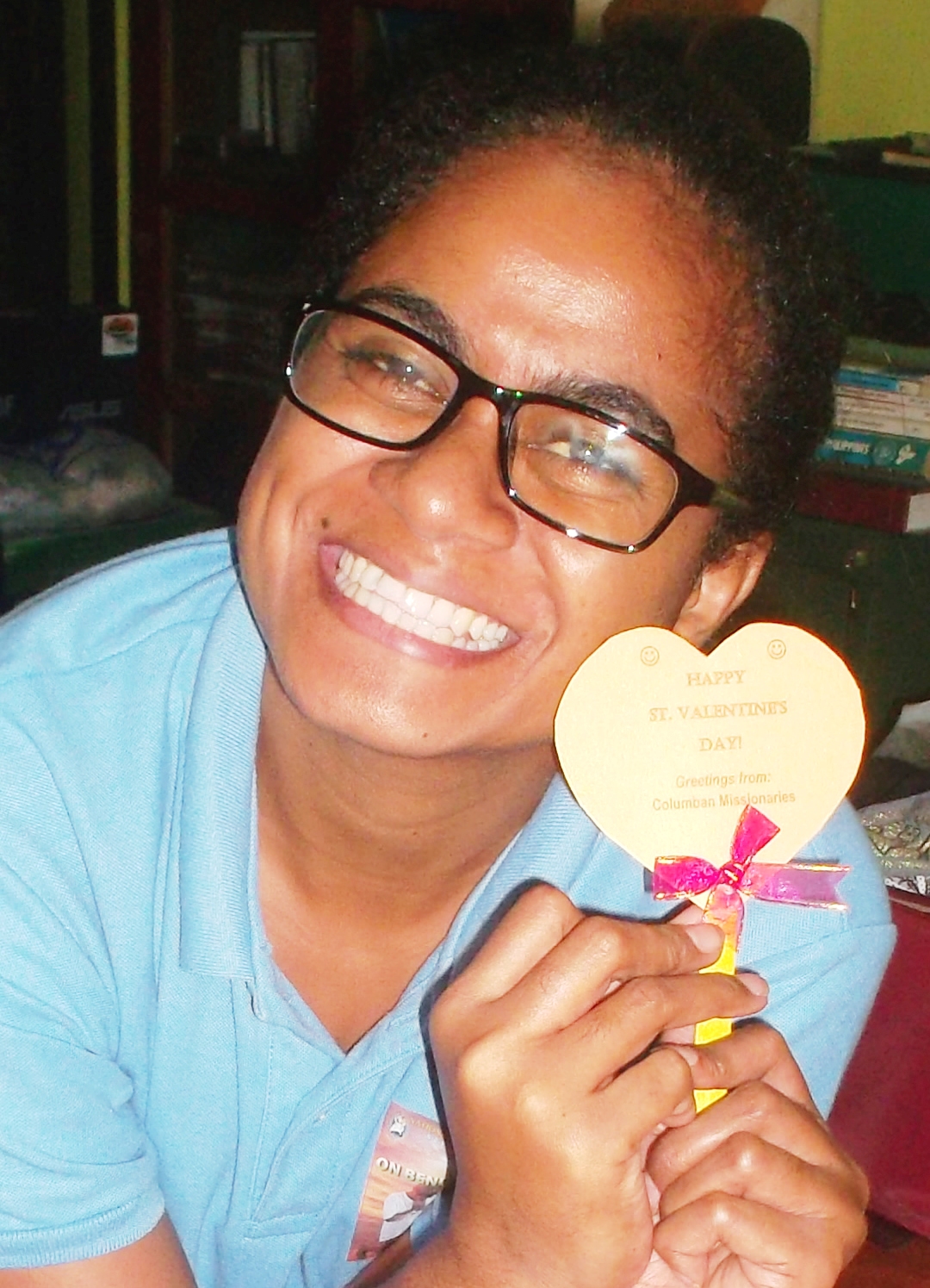 Learning a new language is really difficult. One has to become a child again. It is entering a new culture that you were not born into. The question most people ask is: WHY LEARN A NEW LANGUAGE?
Learning a new language is really difficult. One has to become a child again. It is entering a new culture that you were not born into. The question most people ask is: WHY LEARN A NEW LANGUAGE?
During my six months language studies, I really struggled to learn Cebuano. My brain was suffocated with new words, grammar, etc., every day. Sometimes I felt like quitting but I realized only losers quit. My body had to adjust also to the change of climate, culture and language. Thinking I had a goal to achieve I did SELF-CARE in order to continue my journey. . .

What I Have Learned from CLINICAL PASTORAL EDUCATION (CPE)
By Peter Dong
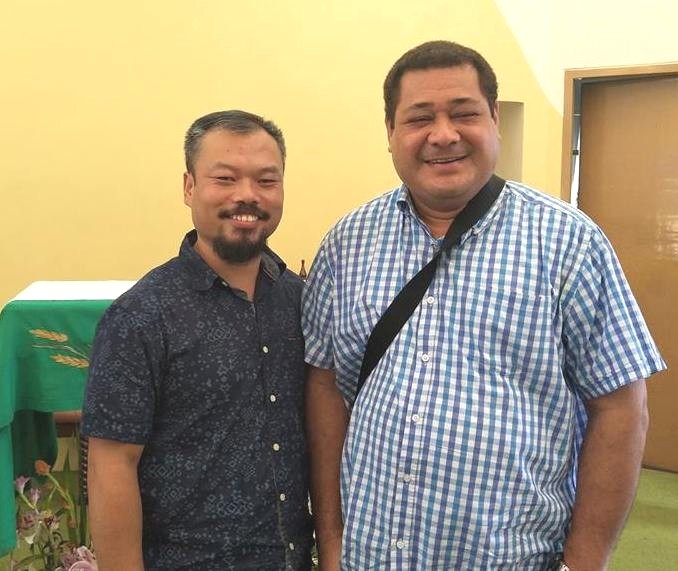
Peter Dong with Fr. Felisiano Fatu, Rector of the Columban Formation Program, Philippines
The author is a Columban seminarian.
I took the Clinical Pastoral Education program at the National Kidney and Transplant Institute. There were nine of us. I thought CPE was about helping the sick deal with sufferings and death. However, along the way, I gradually discovered that it was not only about helping the sick, but also helping my own self. While doing my patient visitation rounds, I recognized my own issues and weaknesses. I, too, need to grow and be healed. Many times, it was not I who comforted the patients, but instead, they were the ones who comforted me, with the way they went through the process of healing. This gave me hope. The group processing helped me face my own shortcomings and affirm the goodness in myself. . .

Will I Wait for the End of Time?
By Larry G. Duerme
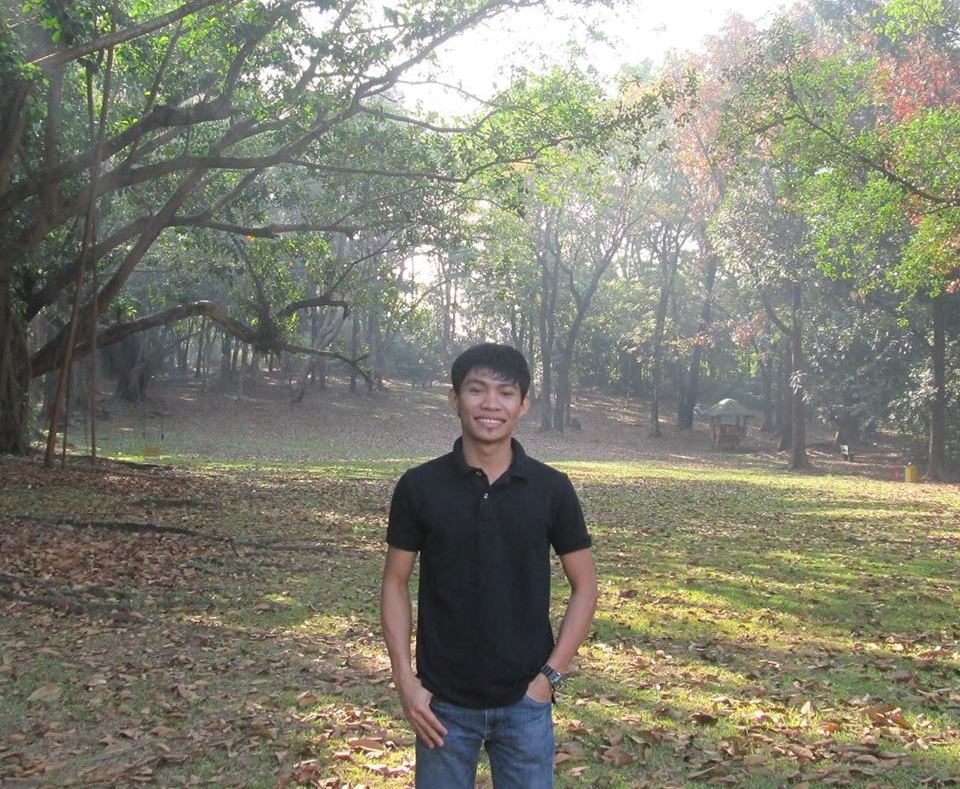
The author is a Columban seminarian from Salawagan, Quezon, Bukidnon doing his spiritual formation year in Cubao, Quezon City. Here he shares to us the poem he wrote as product of his reflection attending the Laudato Si’ – Awakening The Dreamer Workshop.
Will I wait for the end of time?
When the last heave of breath is gone?
When all that I see now are dead?
When the beautiful created things of this life are already shattered?
. . .

The Missionary Society of St. Columban has been blessed with two ordinations in February 2018 – ordinations to priesthood and diaconate. Thank God for the gift of Vocations! It is then fitting to raise this question which puzzled a number of the faithful: What is the Sacrament of Holy Orders and why is it called “Orders”?
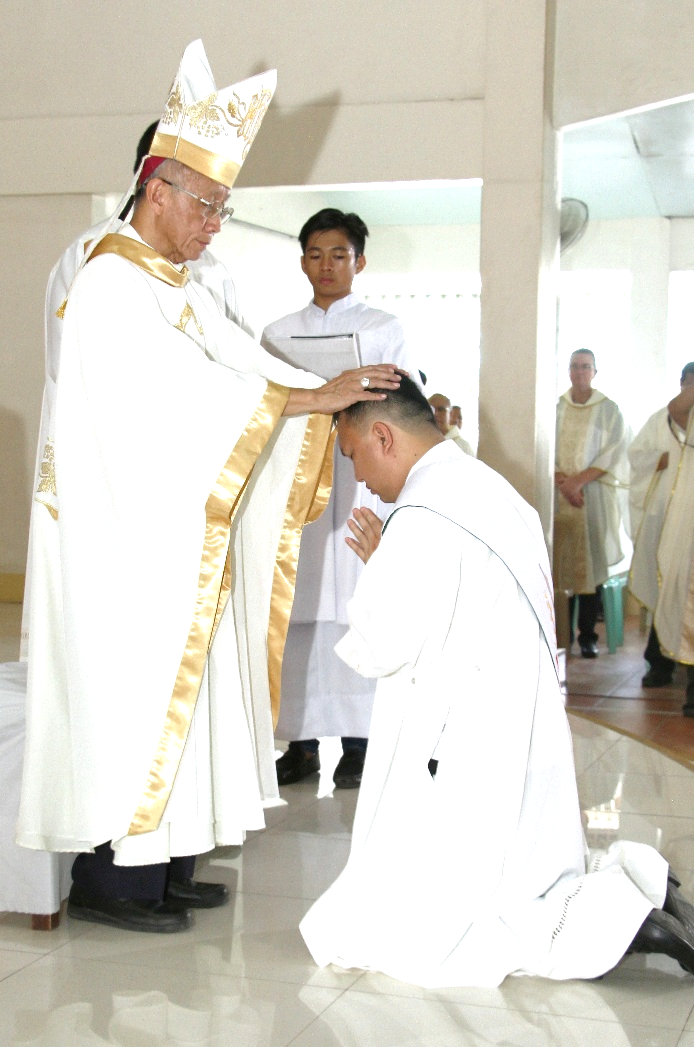

March – April 2018
You know that the rulers of nations behave like tyrants and the powerful oppress them. It shall not be so among you: whoever wants to be great in your community, let him minister to the community. And if you want to be the first of all, make yourself the servant of all. Be like the Son of Man, who came not to be served, but to serve, and to give his life to redeem many.

~ Matthew 20:25b-28

From the Editor
Responding to the Call
By Arlenne Villahermosa
The Missionary Society of St. Columban’s centenary celebration has been blessed with two ordinations in the Philippines in the month of February: Diaconate Ordination of Rev. Peter Dong, the first Chinese member of the Society in one hundred years on February 4, 2018, and the Priestly Ordination of Rev. Erl Dylan Tabaco on February 17, 2018.

These two occasions speak not only of jubilation on the day of ordination but also of a journey filled with the grace of God, a process of listening to and answering the call. They speak of formative years so that each one may discover and know the depth of God’s love in themselves, and by the same love reach out to others in mission. Eph 3:16, 19 says, “May he strengthen in you the inner self, through his Spirit, according to the riches of his glory . . . that you may know the love of Christ that surpasses all knowledge, that you may be filled and reach the fullness of God.” They also speak of people who have become part of the whole process, of structures, of experiences, of faith and dialogue, of creation that nourishes and sustains, and of the participation and openness of Fr. Erl and Rev. Peter to the call.
On separate occasions, five Columban lay missionaries, Joan Yap, Reins Mosqueda, Sheryl Lou Capili, Ana Flores and John Din renewed their commitment to the Society. These are occasions of joy and thanksgiving as well, praising God for the gift of vocation and mission. From out of the depths of their being, they again said a joyful “Yes” to mission. With this commitment, they have opened-up themselves to the movements of the Spirit, inviting each one of them to see beyond one’s confines.
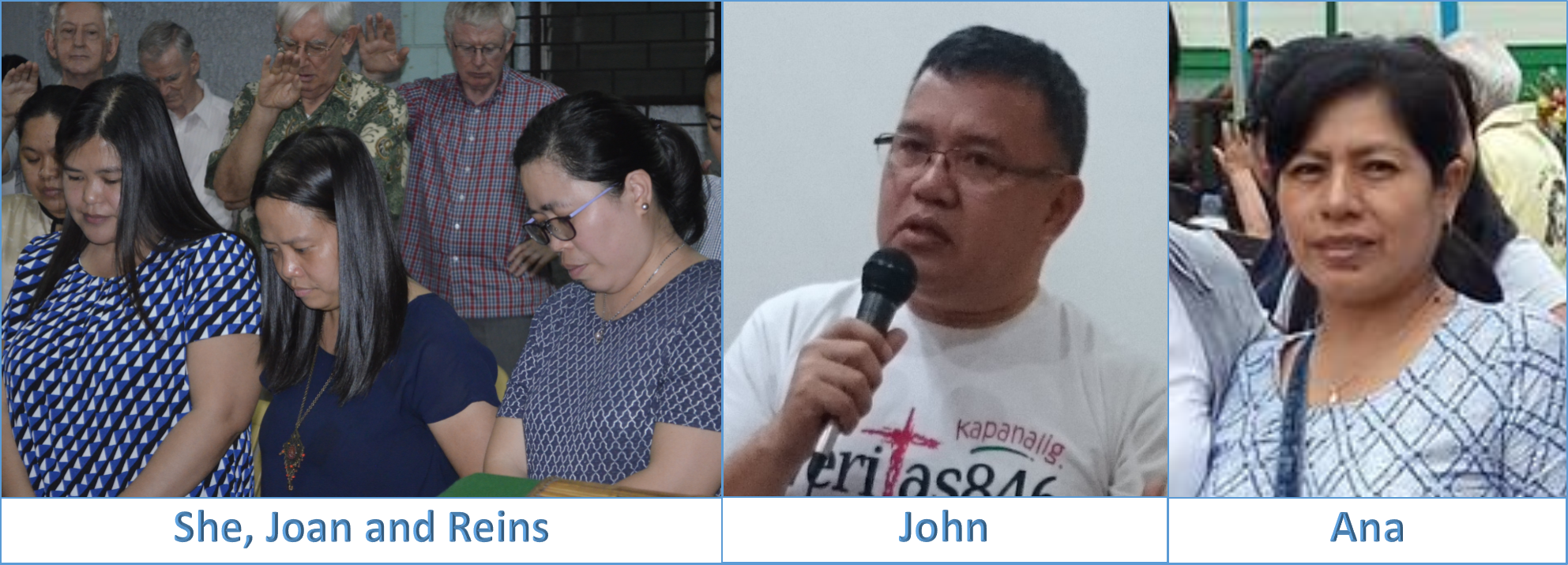
In the same way, people from all walks of life are also responding to the call to love in their own life’s situation. Sr. Carmela has responded to the call by becoming a religious nun; Larry has responded to the call to care for the earth; and Va has responded to the call to love and embrace another culture, another language through the gift of music. God is inviting all of us to share in His love, in our own unique circumstances in life, drawing from us what we have and giving us the freedom to respond in our own creative ways.
Responding to the call to love is responding from the depth of our being where the indwelling God manifests the vastness of His love in all the circumstances of our life beyond our comprehension.
Music Eases My Journey
By Vasemaca Ratu
Vasemaca Ratu is a Columban Lay Missionary from Fiji who came to the Philippines in December 2015. After language studies she was assigned to Barra sub-parish, Opol, Misamis Oriental doing catechesis with the children. She is also involved with the women’s ministry (livelihood), Basic Ecclesial Communities (BEC), and with the youth ministry. Now, she is working with the Diocesan Deaf Ministry of the Archdiocese of Cagayan de Oro.
 Learning a new language is really difficult. One has to become a child again. It is entering a new culture that you were not born into. The question most people ask is: WHY LEARN A NEW LANGUAGE?
Learning a new language is really difficult. One has to become a child again. It is entering a new culture that you were not born into. The question most people ask is: WHY LEARN A NEW LANGUAGE?
During my six months language studies, I really struggled to learn Cebuano. My brain was suffocated with new words, grammar, etc., every day. Sometimes I felt like quitting but I realized only losers quit. My body had to adjust also to the change of climate, culture and language. Thinking I had a goal to achieve I did SELF-CARE in order to continue my journey.
Reflecting on this, I realized there are several ways to smooth out the rough road.
I tried practicing with the children in our neighborhood but they wanted to speak in English so that didn’t work for me. My daily conversation with people was an awesome experience.
Then I realized that since I love music why don’t I use music to ease my struggles. I started listening to Visayan songs, mostly hits by Yoyoy Villame and Max Surban. Their songs may be old hits but the lyrics are understandable.
Once I heard a song by Max with these lyrics, “...dili kana ang problema, just relax and enjoy…” At that moment, I felt like he was talking to me. So I decided to relax by writing a poem or a song every day in Cebuano. I was able to compose a song entitled “Bisaya”, expressing my feelings during my three years in mission. In English, the lyrics translate to:
He will be my compass, my captain who will take me around wherever I go.
He will be my yesterday, today and my future.
He is my love and my world.
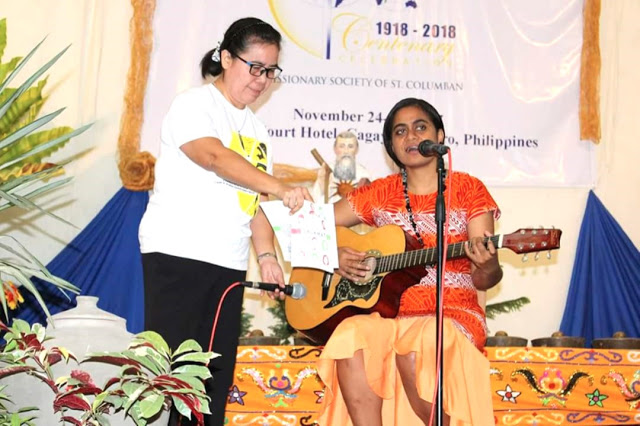
Va singing her original composition, "Bisaya", during the centenary celebrations in Cagayan de Oro City
This song is included in the Columban Lay Missionaries book entitled “SALAMAT” (which means “thank you”). It was launched during the Centennial celebration of the Columban Missionaries in Cagayan De Oro. I was happy to be able to sing my song on that special day in the life of the Columban Missionaries.
I realize now that in learning a new language, I gained more than words and phrases that were previously meaningless to me. I gained confidence for the positive feedback from the local people. I have become friendlier with them because I can speak in the native language. Speaking in their language keeps my mind young and active as I strive to learn new ways to express myself in songs.
So, listen to that classic jazz and just relax and enjoy your music. It’s a stress reliever.
BISAYA
Ikaw ang gitun-an
Ug unom ka bulan.
Ikaw ang akong kalig-on
Ug kahuyang sa mga tawo.Ikaw lang Bisaya
Akong higugmaon.
Ikaw lang Bisaya
Akong kalibutan.Ikaw akong kumpas
Ikaw akong kapitan.
Nga madala
Kanako bisan asa.Ikaw ang akong buhat
Ikaw ang akong garbo.
Ikaw ang akong kaugmaon
Sa akong kinabuhi.[Chorus:]
Ikaw akong gahapon
Ikaw akong karon.
Ikaw akong kanunay
Pulong ko tinud-anay.
Dinuyugan ning gitara.
Wa ka mag-inusura
Kanimo nahigugma.
Ikaw...
Our Hideaway
Will I Wait for the End of Time?
By Larry G. Duerme

The author is a Columban seminarian from Salawagan, Quezon, Bukidnon doing his spiritual formation year in Cubao, Quezon City. Here he shares to us the poem he wrote as product of his reflection attending the Laudato Si’ – Awakening The Dreamer Workshop.
Will I wait for the end of time?
When the last heave of breath is gone?
When all that I see now are dead?
When the beautiful created things of this life are already shattered?
Will I open my eyes to see what has just happened, without even thinking of what’s going on?
Will I just forever close my ears to the cries of the suffering world?
Will I just keep my hand forever neat and attend only to what I need?
Will I just keep my feet off the ground and just shake the dust out of it?
How can I be so naïve to the growing issues of the world?
How can I be so greedy and feed only my need?
How can I be so careless even when I know that I already contribute to the damage of this world?
How can I be so lazy and make no effort to care for the earth?
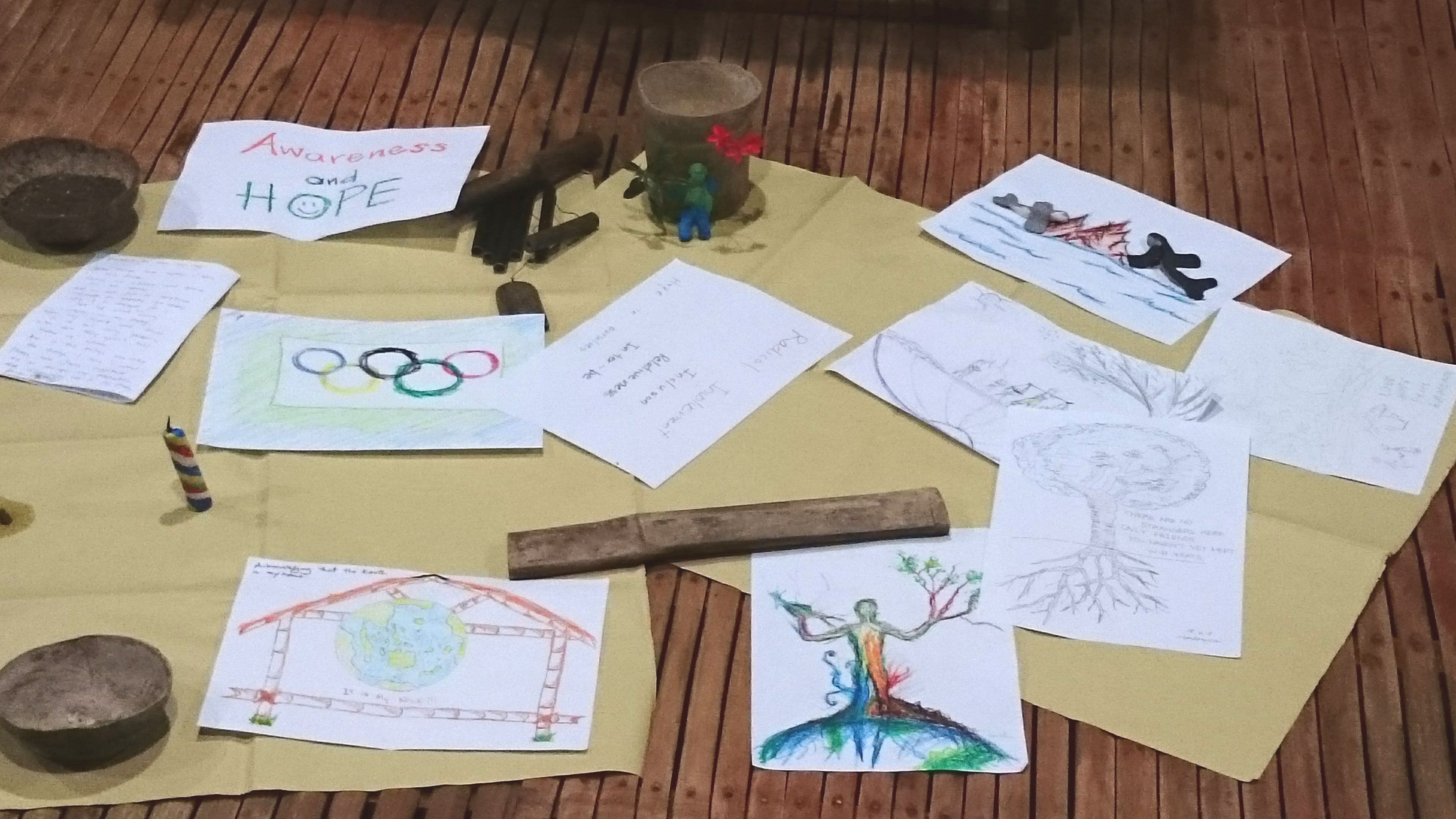
Should I just blame others for what has happened?
Or should I just not bother because I still have many things in my hand?
Should I just leave the problem because time will pass and humans will become extinct too?
Or should I do nothing because the things I think should be done wouldn’t be done by any other?
But Lord, before I leave this place, grant me wisdom and grant me the grace I need.
Help me to not confine myself to safety; for every life is in danger if I just allow the wrong to continue.
Open my heart to dwell in your living presence, the Holy Spirit, and open my eyes to see.
For if these are the only things I have in mind, please, Lord Jesus, inspire me to change my perspective and fill my mind with true love for Your Creation.
Accompany me in my planning and make Your Plans my plans.
Amen.
(CELL, February 7, 2018)
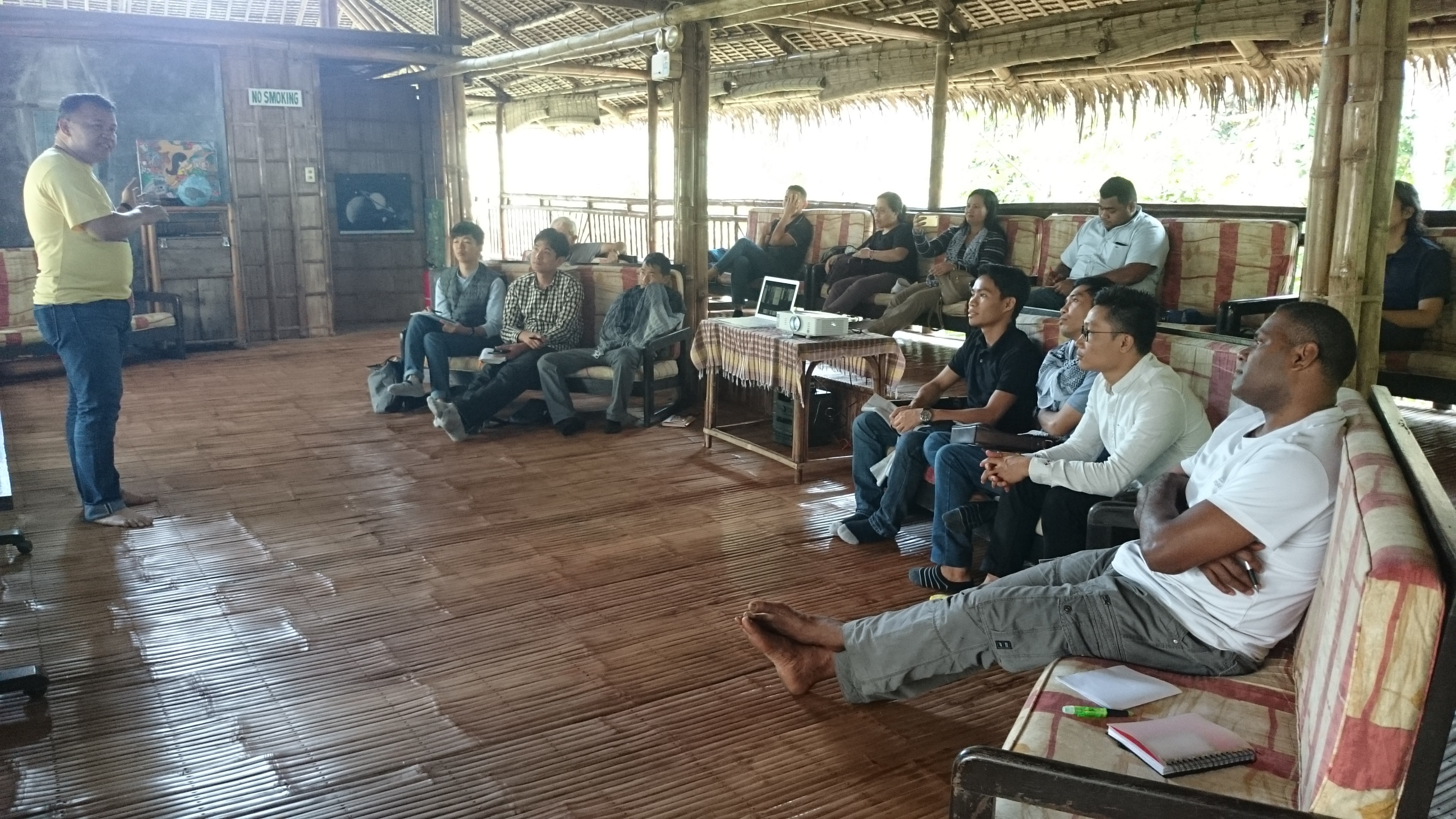
Columban Spiritual Year Students attending the
Laudato Si’ – Awakening the Dreamer Workshop
Center for Ecozoic Living and Learning (CELL), Silang, Cavite, February 7, 2018
Peace by Peace
March – April 2018
You know that the rulers of nations behave like tyrants and the powerful oppress them. It shall not be so among you: whoever wants to be great in your community, let him minister to the community. And if you want to be the first of all, make yourself the servant of all. Be like the Son of Man, who came not to be served, but to serve, and to give his life to redeem many.

~ Matthew 20:25b-28

While the demand for justice is implied in love, still justice ‘attains its inner fullness only in love.’ For in justice, the other person can remain ‘another’, an alien. In love the other is a friend, even a brother or sister in Christ.
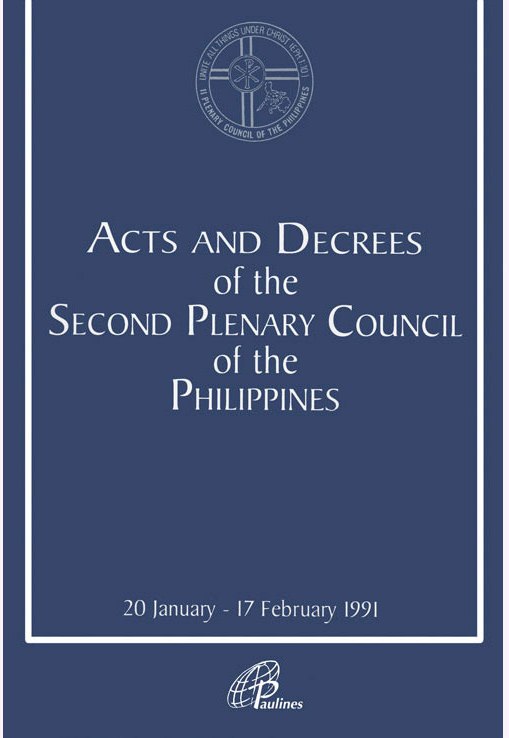
~ Second Plenary Council of the Philippines (PCP II) #305

One day, a new idea will arise and there will be an end to all wars. I die convinced of this. It will need much hard work, but it will be achieved.
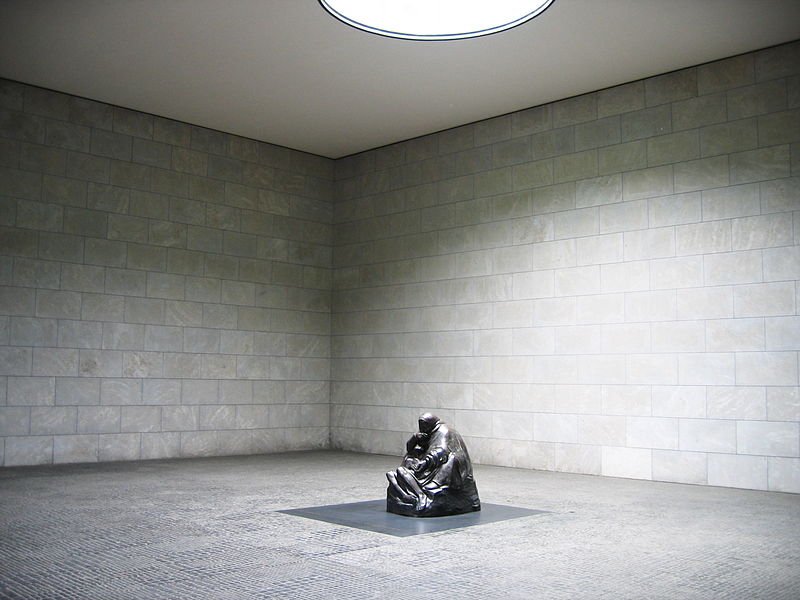
The interior of Neue Wache in Berlin, with Käthe Kollwitz's sculpture “Mother with her Dead Son” – centerpiece of what is today Mutter mit totem Sohn , a memorial to “victims of war and dictatorship”
~ Kathe Kollwitz, Artist (1867–1945)

I am convinced that the truest act of courage, the strongest act of manliness is to sacrifice ourselves for others in totally nonviolent struggle for justice. To be a man is to suffer for others.
~ Cesar Chavez, Farmworker (1927–1993)

The community of the church is the place where the rest of humanity should be able to see the beginning of God’s new creation. To be sure, the church is not always the perfect reflection of what it ought to be. To be sure, the church often falls short of living according to the new life that God has bestowed upon it in Christ. This said, it is the church that points to God’s new creation made possible by Jesus’ resurrection from the dead.
~ Frank J. Matera, Resurrection: The Origin and Goal of the Christian Life

Easter Joy
The joy of Easter is a joy born out of suffering and the cross… While Christmas activates the child in us Easter joy represents the adult experience of trial and suffering to emerge with the hard-won victory over death and darkness. Easter offers the experience of seeing things in a new light with new possibilities and endless hope. It helps us rise above cynicism and negativity to defeat all forms of death-dealing culture.
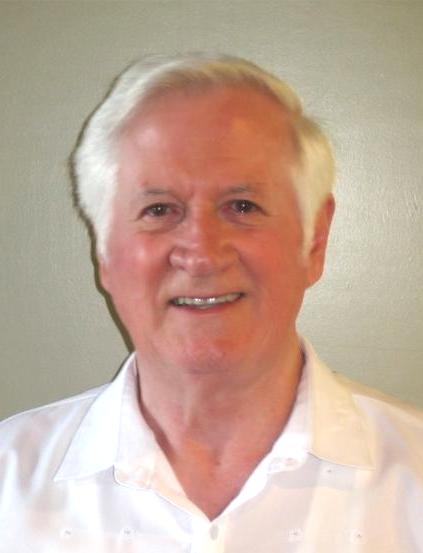
Columban Father Colmcille McKeating (1940 – 2015)
~ Colm McKeating, Peace at the Last: A Christian Theology of the Last Things

The anguish we feel from what is happening to our world is inevitable and normal and even healthy. So pain is very useful. Just don't be afraid of it. Because if we are afraid to feel that, we won't feel where it comes from. And where it comes from is love. Our love for this world that's what is going to pull us through.
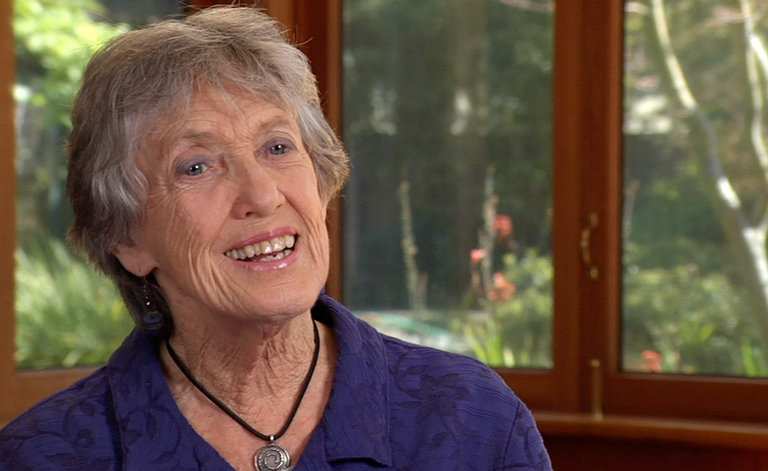
~ Joanna Macy, Ecophilosopher, environmental activist and author

Solemn Profession of Filipina Carmelite in Belgium
By Sr. Mary Carmela OCD

Sr. Marie Paul Thérèse after her Solemn Profession
This story has one of its beginnings in the pages of MISYON, as MISYONonline.com was known before. Columban magazines have been a significant part of the vocation story of many, not all of them Columbans, such as Sr. Marie Paul Thérèse of Jesus the Good Shepherd. We thank God for that.
On Sunday October 1, 2017, the feast of St. Thérèse of Lisieux, the sun was shining brightly in Vilvoorde, Belgium. The Carmelite monastery church, the Basilica of Our Lady of Consolation, was beautifully decorated with white flowers and filled with more than the usual Sunday attendance. The atmosphere was festive as Sr. Marie Paul Thérèse of Jesus the Good Shepherd, our youngest Sister, pronounced her perpetual vows in the Order of Our Lady of Mount Carmel during the Solemn Mass that began at 3pm.
The eldest of four siblings, Sr. Marie Paul Thérèse, née Jurechille Catalan, was a member of the Redemptorist Youth Ministy in her birthplace, Iligan City. She came to know Vilvoorde Carmel in 2007 upon reading The Touches of God in MISYON, then a printed magazine, by one of the Filipina Sisters, Sr. Carmela, about her first home visit. She was intrigued by the term "contemplative-missionary Carmelite", something new to her and asked how it was possible to be one. She searched in earlier issues of MISYON and found earlier articles written by the first group of Filipina Sisters who came to Vilvoorde in 2003, their first impressions, celebrations and so on. These were Sr. Carmela from the Carmel in Cebu, Sr. Bernadette Marie from Zamboanga Carmel and Sister Rose Ann Dominique from Gilmore Carmel, Manila.
After about a year of correspondence, convinced that God called her to be a part of this contemplative-missionary journey in Belgium, she applied to Vilvoorde Carmel, which in turn referred her to the Carmels in Cagayan de Oro and Cebu for interview and a discernment process. Her visa was approved on the day that the oldest sister of Vilvoorde, Sr. Theresia of the Child Jesus, went home to God. We thought it must have been the very first thing she asked from Jesus upon entering the gates of heaven because she had been praying and kept asking for the arrival of the two postulants from the Philippines.
Sr. Paul Thérèse arrived in Vilvoorde on February 24, 2009, and was clothed with the brown habit and received her religious name on October 1 that same year and pronounced her first profession on October 1, 2011.
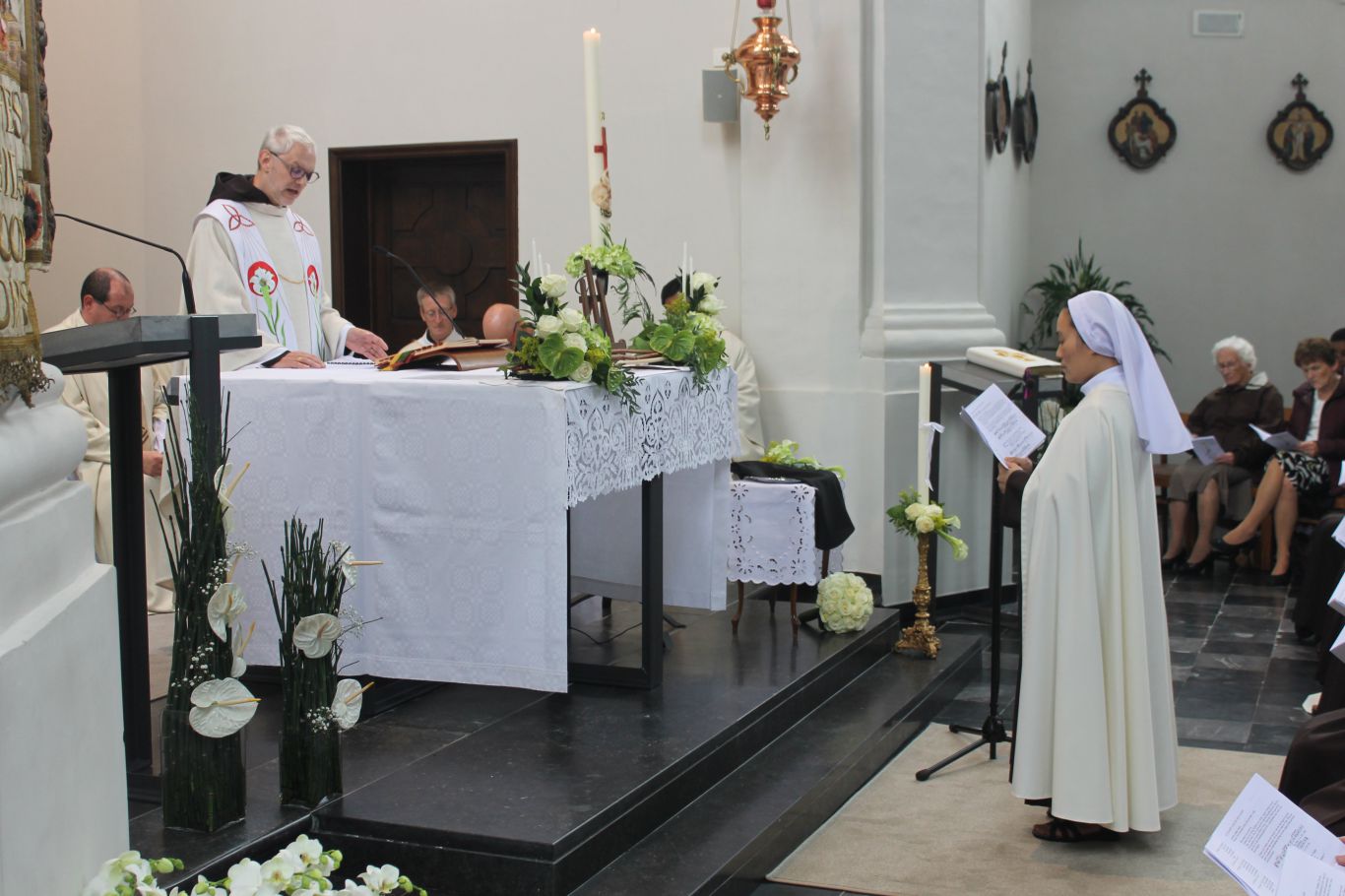
Dialogue with Fr. Paul De Bois, OCD, Carmelite Provincial
Six years later Sr. Paul Thérèse made her perpetual profession in a ceremony that, from the entrance procession, made a deep impression on all. The main celebrant was Fr. Paul De Bois OCD, the Carmelite Provincial in Belgium. Eight other priests concelebrated. The Carmelite nuns all wore white mantles and Sr. Paul Thérèse, carrying a white lighted candle and a bridal bouquet of white roses with Rev. Mother Prioress beside her, came last in the entrance procession.
The profession rites took place after the Gospel and homily. They began with a brief dialogue with Fr. Provincial wherein the bride's firm intention to belong fully to God for the rest of her life was manifested. Then the Litany of the Saints was sung, the names of San Lorenzo Ruiz and San Pedro Calungsod being added, while the bride prostrated herself on the ground in the form of a cross as a sign of her total surrender to God. Then we heard her pronounce her vows in Flemish in a voice full of conviction: “I, Sr. Marie Paul Thérèse of Jesus the Good Shepherd, desiring to live faithfully a life of allegiance to Jesus Christ, with my Sisters as witnesses, into your hands, Rev. Mother Lutgardis of Mary, vow to Almighty God perpetual chastity, poverty and obedience according to the Rule and Constitutions of the Discalced Nuns of the Blessed Virgin Mary of Mt. Carmel . . . To give eternal glory to the Most Holy Trinity."
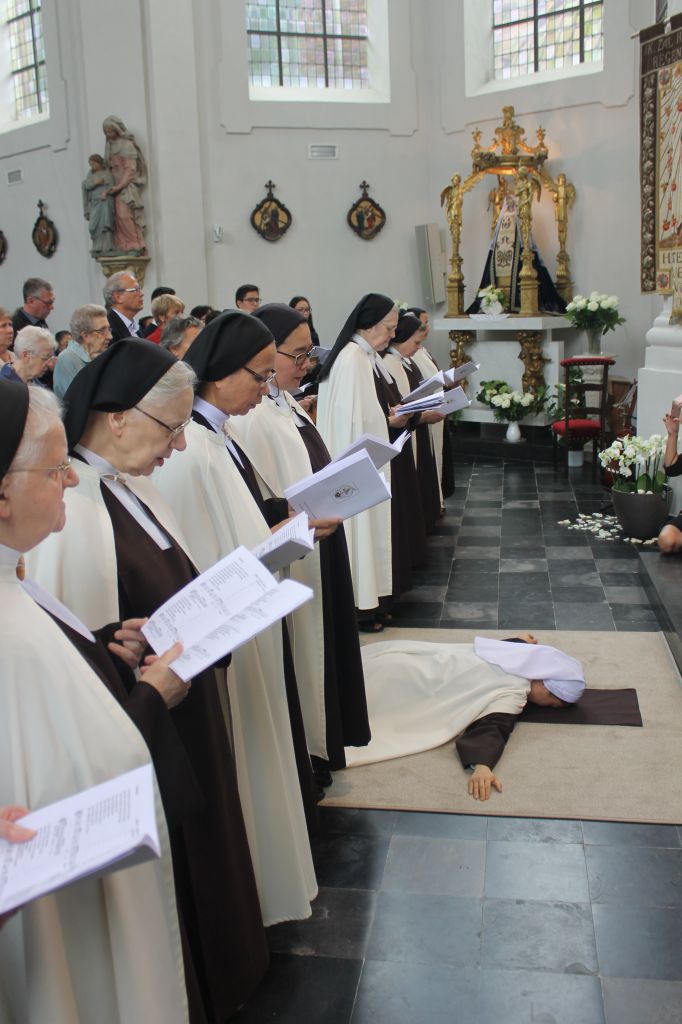
Sr. Paul Thérèse during the Litany of the Saints
For love of Jesus and His Church, Sr. Paul Thérèse committed herself to God and the community of Vilvoorde to live as a Carmelite, praying and labouring for the many needs of the Church and of the world. She sang her bridal song O Mijn Welbeminde, Flemish for "O My Beloved", with joy-filled gratitude to Jesus for gifting her with His love and grace. The beautiful accompaniment of our organist added much color to the solemn and profoundly moving celebration – breath-taking, endearing. Tears of joy and gratitude overcame the guests for most of whom it was the first time to witness such an extraordinary event! It was 26 years ago since a Sister – Reverend Mother Lutgardis of Mary – had made her perpetual profession here, a visible testimony to the reality that God still continues to call people who are willing to answer His invitation to follow Him!
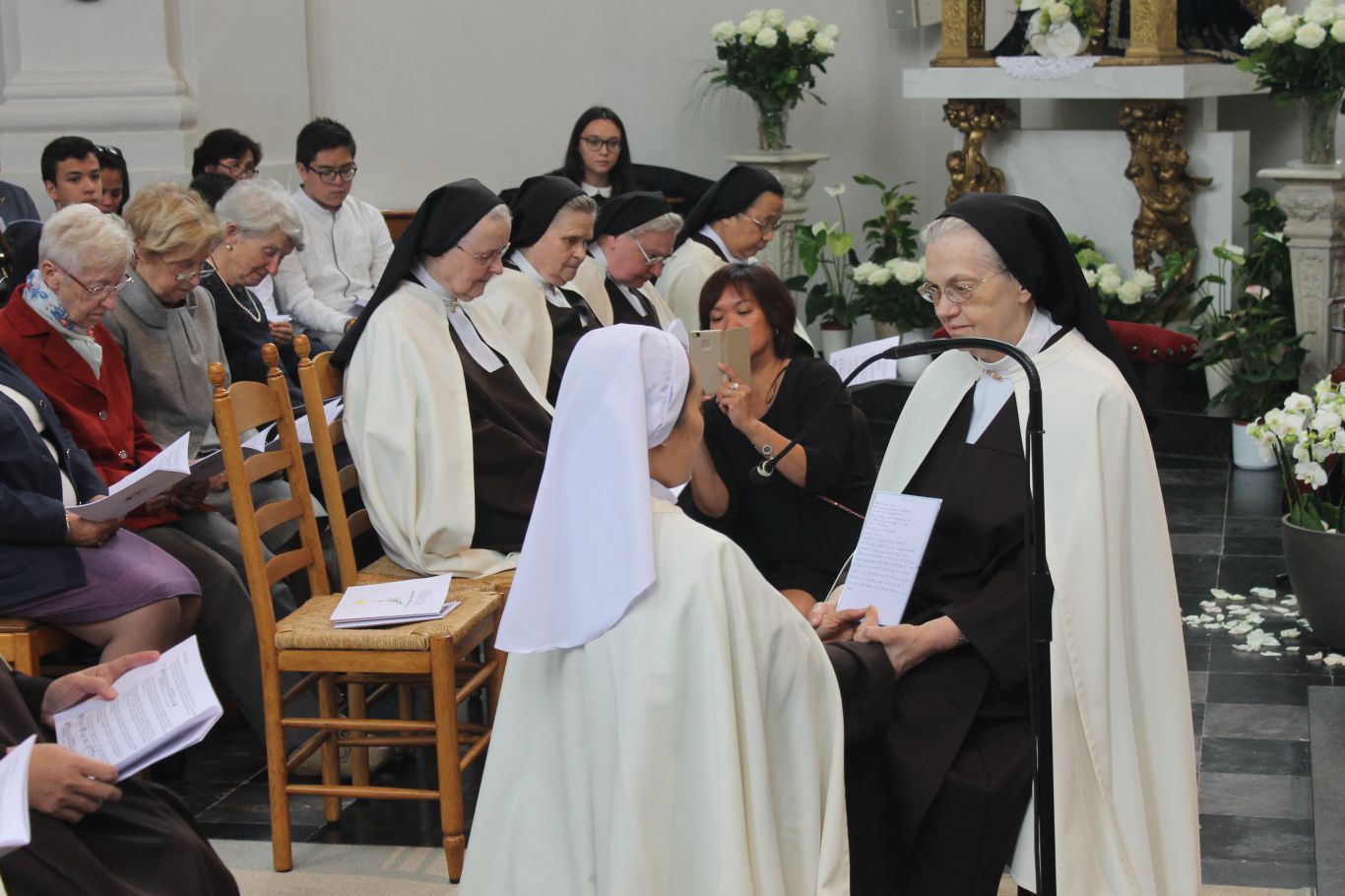
Sr. Paul Thérèse making her Solemn Profession to Reverend Mother Lutgardis of Mary
The Carmelite community is deeply grateful to Fr. Provincial, the concelebrating priests and Reverend Jan Goyvaerts, a permanent deacon, to all those who came, our acquaintances, friends and benefactors, the members of The Friends of the Troost, the Filipino community, the Flemish Federation of Carmels in Belgium and the Association of Carmels in the Philippines and to MISYON, all a part of the spiritual journey of Sr. Paul Thérèse, for all the prayers, support and solidarity.
Sr. Marie Thérèse is the very first Filipina Sister to receive her initial formation and to make her perpetual profession in Vilvoorde Carmel, the oldest continually-existing community of Carmelite nuns in the world, now journeying towards the 550th year of its foundation in 2019. She tells the story of her vocation in From Iligan to Vilvoorde in MISYONonline.com.
Please, do keep us in your prayers as we do pray for you, thank you!
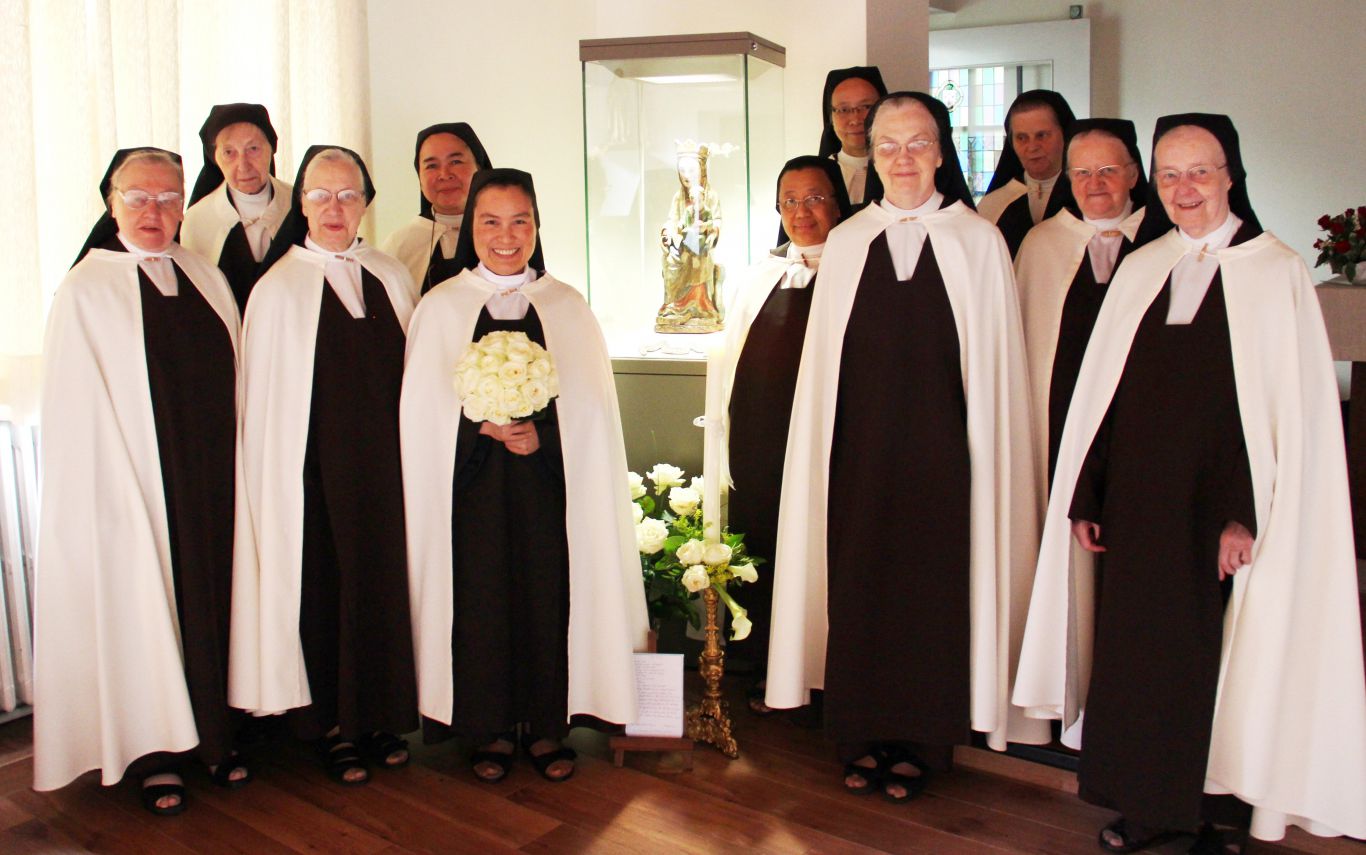
Sr. Marie Paul Thérèse with her community
You will find more photos of the celebration on the blog of the Vilvoorde Carmel here.
The Late Dawn Of A Restless Dream
Here is an article about the diaconate ordination of Peter.
A faith born in the shadows cast by a single candle in a tightly curtained room of a small farming village in China emerging from the repression of the Cultural Revolution in the early 1980s blossomed on February 4 in the chapel of the Columban Seminary in Manila, as Peter knelt before Bishop Honesto Ongtioco to be ordained a deacon, becoming a minister of the word of God that he had imbibed in the clandestine darkness of his home so many years before.
The ordination was also the fulfillment of a dream born in the imagination of an Irish priest working in China over 100 years ago.

As the bishop of Cubao laid hands on the first Chinese member of the Missionary Society of St Columban, the dream expressed by Bishop Edward Galvin in the 1920s, only to be shelved in the face of mounting instability and the pressure of founding a new mission, took a first, but tentative step.
Born on 27 January 1982, Peter and his older brother, along with their parents lived their Catholic faith behind the curtains. “We could only attend Mass perhaps at Easter and Christmas, as the church was a long way away and we could not arouse suspicion about our religion among our neighbours by making the trip too often,” he explained.
Life was hard on the family’s small farm that produced only a subsistence living. “But I do not remember being hungry,” Peter said. However, he was about 15-years-old before there was at least some charcoal to drive the freezing bite from the winter air in their simple rural home.
As the second son of a farmer, Peter, along with his brother learned about life on the land from his father, but in the darkened room the flicker of the candle awoke in him a flicker of faith and with it was born an awareness of the colour it could bring into his life.
“I remember the bright vestments at Mass,” he reminisced, “the green, the red and the gold embroidery,” while explaining that in a society dominated by the drab of Communist grey and green, he secretly hoped that the day would come when his own life could be decorated with a similar splash of rainbow.
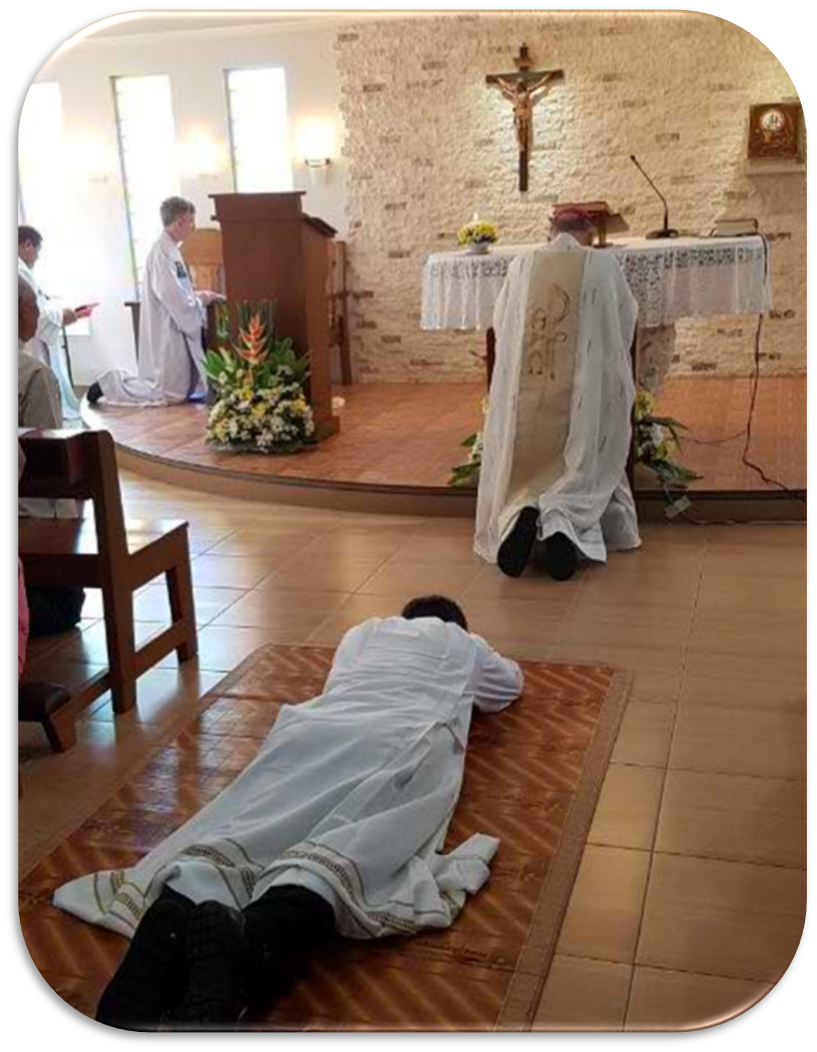
But the fancies of a child are not the matured faith of an adult and, although he was aware of the strange longing developing inside of him as he made his way through middle and into high school, it was not until he finally moved to a seminary college for the completion of his basic education days that he could begin to put words on it.
However, his first days in the seminary were not the smooth road of a growing vocation and after six months the rector told him he should go home for a while, as it appeared he was not enjoying the life.
At 17-years-of-age his dream was shattered, but his father encouraged him not to give up and he was later accepted into a seminary in another area. But what was to unfold was far from what he had imagined when he packed his bags to leave home for the second time.
An encounter with a foreign missionary who visited the seminary started him thinking in a different direction, prompting him to take learning English seriously and contemplating a life quite different from the direction in which his classmates at the seminary were heading.
Then it was off to Manila for studies; language, philosophy, theology and many other subjects became his daily fare, culminating in a year of concentrated spirituality and then a plane ticket across the world to Chile.
“It was not just another language, but a whole new vision of life,” Peter recalled. He explained that the highly sensate culture of Chile came as a huge shock to him as a young Chinese man with little sense of the importance of feelings.
“I began to feel a God of warmth, a God who laughs and is close to his people, not distant as I had experienced in China. Everyone was the same in the Church—bishop, priest and people—in the Church we were all at home,” he said.
“Learning Spanish was like opening a window to equity in relationship among the people,” he went on. “Through this foreign culture I could see how I could be with people and it taught me so much about the beauty of my own Chinese culture that I had never noticed before.”
He learned to laugh; at his own mistakes, at the humour of what does not work the way it is intended and to hear God laughing with the people.
“As a young boy I was taught that Jesus did not laugh and that life was a serious matter, but in Chile I learned that in fact, Jesus laughed a lot,” he explained.
Peter added that he began to feel a deep gratitude to his parents for his very life. “In a way they were refugees from hunger,” he said, “as they moved south in search of a place with food during the great famine and then paid a big fine in order to be allowed to give birth to a second child.”
This taught him another great lesson. “I also learned to cry. I cried unashamedly when my best friend died in a car accident. It was a lonely feeling, but I learned through the tears to understand how I felt.”
He added, “I cried in Cubao when an old missionary told me he wanted to die in The Philippines. Chinese people usually want to die at home, but in my tears I reflected that I will die somewhere and I came to realise I did not care where. It is in God’s hands.”
His tears were somehow a solvent for the restlessness Bishop Ongtioco referred to at his ordination ceremony, as he spoke of the restless heart of Job that only settled when he placed his life in God’s hands, and St. Paul, whose desire to move on was frustrated by the people that continued to flock around him.
Peter was restless when he was asked to leave the seminary, but explained that God spoke to him through the people who encouraged him and enabled him to find another direction in his life, and the restless faith of his father was calmed as he clothed him, this time not in the shroud of secrecy, but the stole of a minister of the word of the God in whom he believes so strongly.
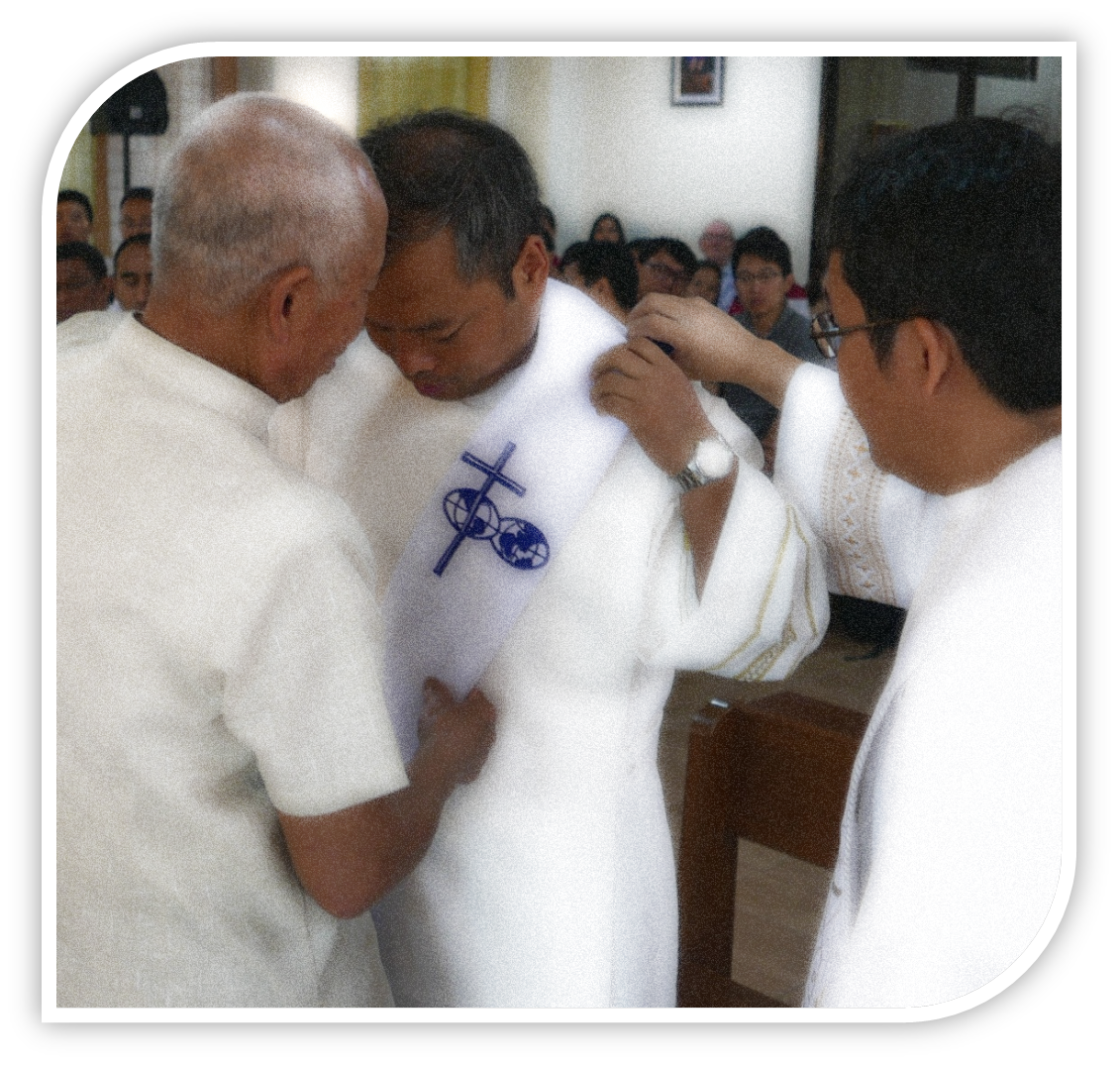
The gestures and mannerisms of Bishop Ongtioco showed Peter that life is more a melody to be danced to than prose to be walked with and once again tears moistened his eyes as he struggled to find words to thank those who supported him on his journeys across the expands of God’s creation.
But what for Peter was a red letter day experienced by many before him, for the Missionary Society of St Columban was one that has taken around 100 years to dawn.
One chapter of its life in China closed with the expulsion of its last member in 1954, but Father Dan Troy commented that a decision made just five years later by the then superior general, Father Timothy Connolly, to send a young Father Ned Kelly to the United States of America to study Chinese language and culture has become the prophetic opening of a new era.
But in one sense what was a day of fulfillment of many dreams, in another, was just a peep at the restless dawn of Bishop Galvin’s dream of finding others to follow him.
To Search Is To Find
The Missionary Society of St. Columban has been blessed with two ordinations in February 2018 – ordinations to priesthood and diaconate. Thank God for the gift of Vocations! It is then fitting to raise this question which puzzled a number of the faithful: What is the Sacrament of Holy Orders and why is it called “Orders”?
Archbishop Antonio J. Ledesma, SJ, DD of Cagayan de Oro ordaining Rev. Erl Dylan J. Tabaco to the order of presbyters
February 17, 2018, Most Holy Rosary Parish, Agusan, Cagayan de Oro City
[Photo Credit: Eldon M. Bravo]
Here’s an answer lifted directly from the CATECHISM FOR FILIPINO CATHOLICS #1949, quoting Catechism of the Catholic Church (CCC) and also from Compendium of the Catechism of the Catholic Church (CCCC).
In its specific nature, Holy Orders is “the sacrament of apostolic ministry.” Through it, “the mission entrusted by Christ to his apostles continues to be exercised in the Church to the end of time” (CCC 1536). “Order” in Church usage simply means the group or body of those who carry on certain functions, such as teaching, sanctifying, and governing.
Ordination is “the sacramental act by which one is integrated into the orders of bishops, of priests and of deacons. It goes beyond a simple designation, delegation or institution by the community since it confers a gift of the Holy Spirit, enabling the exercise of a sacred power which can only come from Christ himself, through his Church” (CCC 1538). That is, enabling the ordained to exercise a sacred power in the name and with the authority of Christ for the service of the People of God (CCCC 323).
What I Have Learned from CLINICAL PASTORAL EDUCATION (CPE)
By Peter Dong

Peter Dong with Fr. Felisiano Fatu, Rector of the Columban Formation Program, Philippines
The author is a Columban seminarian.
I took the Clinical Pastoral Education program at the National Kidney and Transplant Institute. There were nine of us. I thought CPE was about helping the sick deal with sufferings and death. However, along the way, I gradually discovered that it was not only about helping the sick, but also helping my own self. While doing my patient visitation rounds, I recognized my own issues and weaknesses. I, too, need to grow and be healed. Many times, it was not I who comforted the patients, but instead, they were the ones who comforted me, with the way they went through the process of healing. This gave me hope. The group processing helped me face my own shortcomings and affirm the goodness in myself.
I learned that I needed to strengthen my own faith and the desire for God. While on one hand, sickness and death destroy our physical bodies; on the other hand, they bring the family together and foster ties among them.
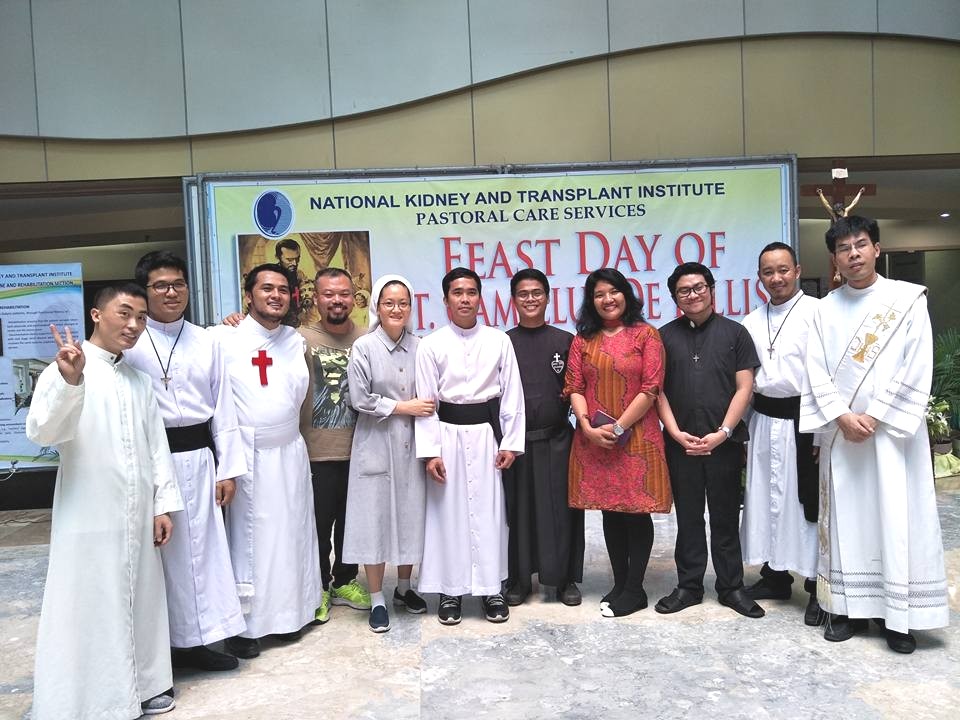
Peter (fourth from left) with his CPE classmates at the National Kidney and Transplant Institute
Three things I learned from CPE: trust, feeling and understanding.
Trust
Trust is a bridge between the patients and me, and between God and me. At the start, it was hard for me to trust others and to build a bridge to reach out to them. I learned from our CPE supervisor that the more I open myself, the more I could get to know others. Gradually, I found myself opening up to the patients whom I visited, including those who were reluctant to receive me. I began to be open to God too. Sometimes I could not understand Him; I could not feel Him, but I trust Him.
Feeling
I used to not understand how important feelings are in our daily life. From where I am coming from, it is really hard for me to describe or show my feelings, especially the negative ones. In CPE, I have learned that feelings tell the truth about myself and others. Now, I’m learning how to face my own feelings, especially the negative ones, and I think I’m making progress. There is no right or wrong about what I feel. Even the negative feelings are part of me. When I express my real feelings, others understand me more.
Understanding
It is important to know some data about the patients and understand their sickness. In this way, I can understand their situation better – why they hide their true feelings, how much they are suffering, etc. – and be able to articulate my questions carefully to help them express themselves and encourage them in their difficulties.



